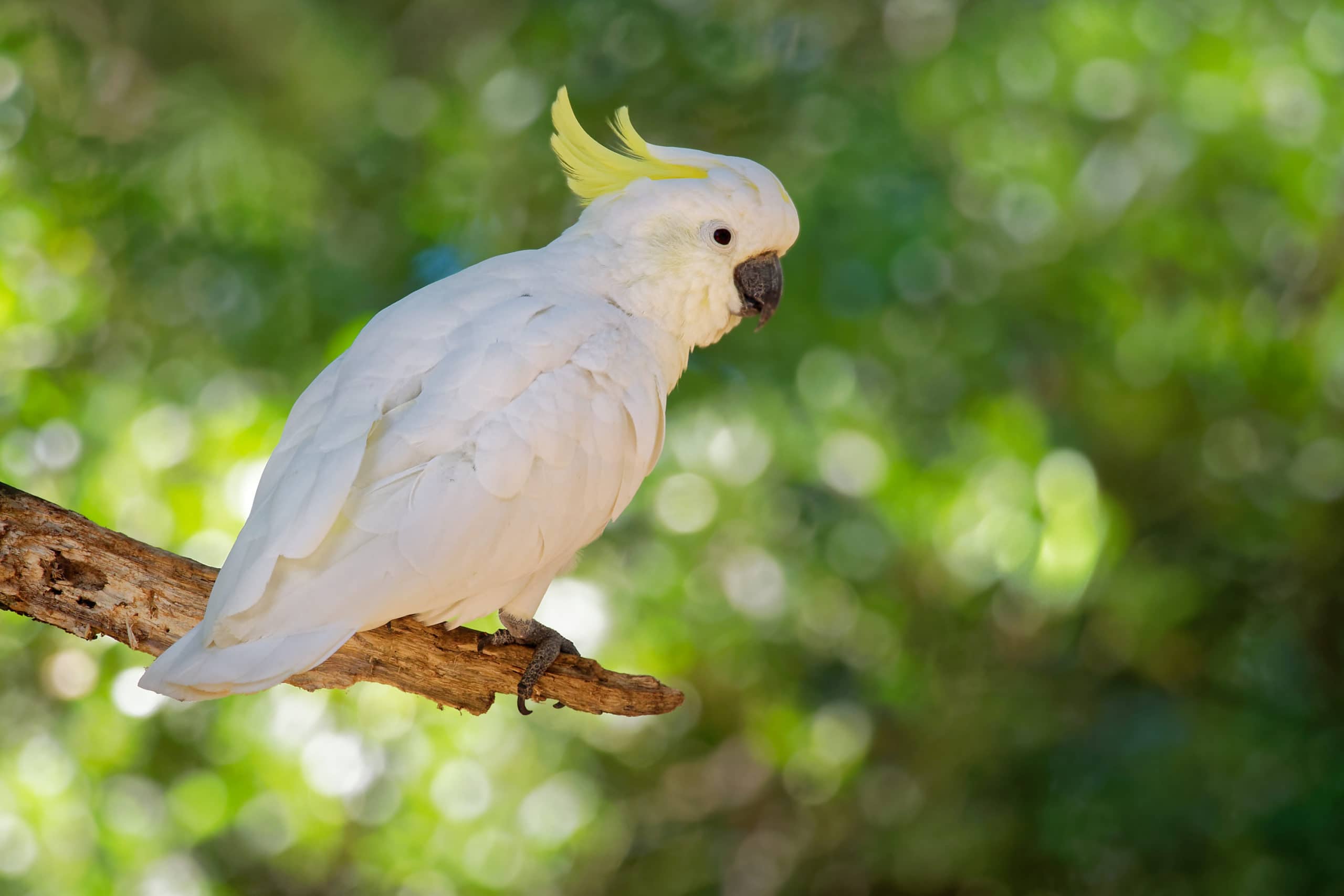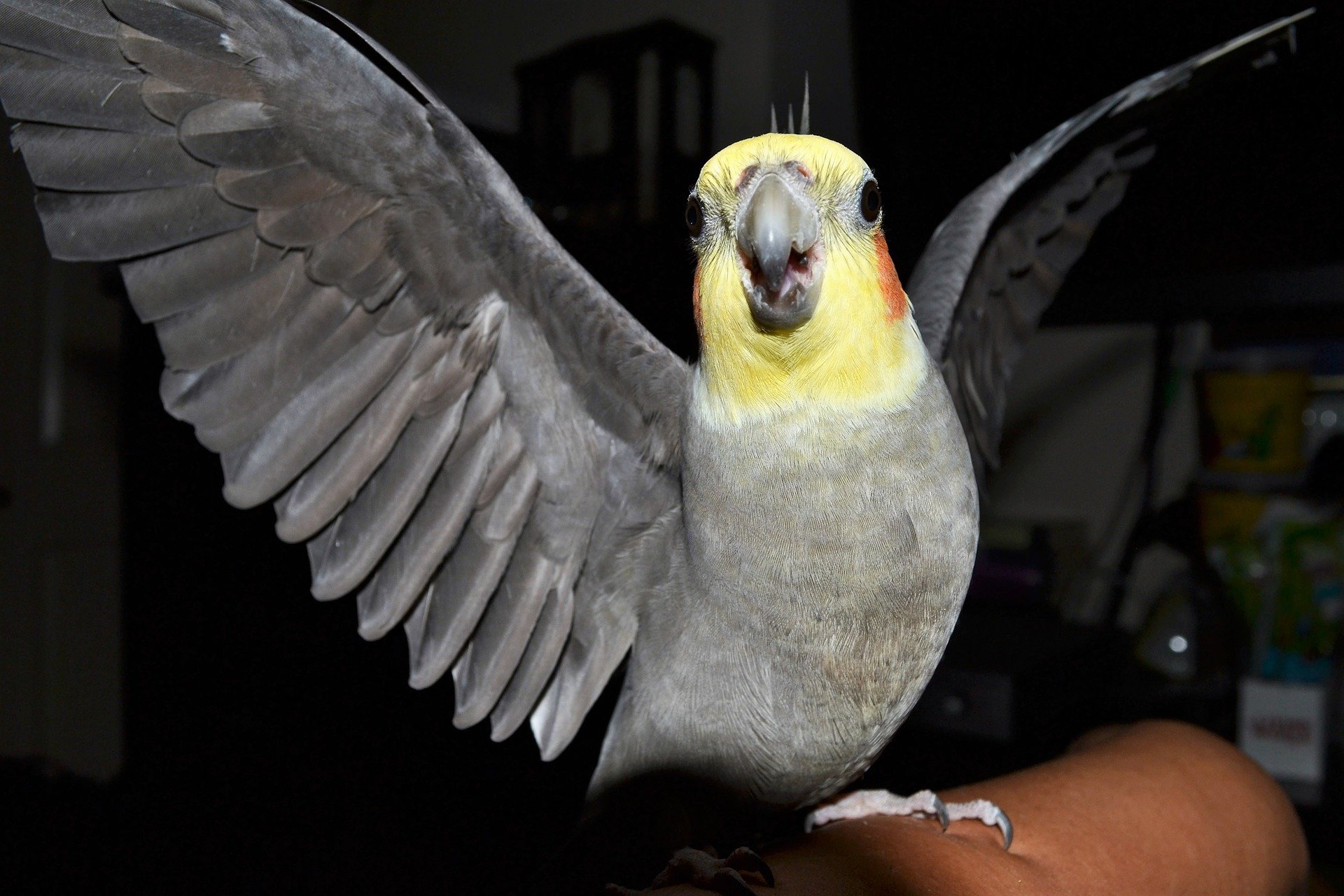
Cockatiels are extremely vocal birds, and most have some kind of vocalization for every occasion. However, one of the sounds that many cockatiels make that can be confusing is hissing. Part of the confusion comes with the number of things that hissing can mean, and the other part of the confusion comes with the fact that we tend to associate hissing with cats and snakes, not birds. If your cockatiel has been hissing recently, here’s what you need to know.
The 7 Reasons Why Cockatiels Hiss
1. Fear
Fear of a situation is a common cause of hissing in cockatiels. They use this sound to discourage predators from attacking them, as well as to make themselves seem bigger and scarier than they actually are. Hissing related to fear is likely to be a situational occurrence, so if your cockatiel has been regularly hissing, then fear isn’t a likely cause unless something in the environment has changed in a way that may be making them fearful, like the addition of a new cat or dog in the home.
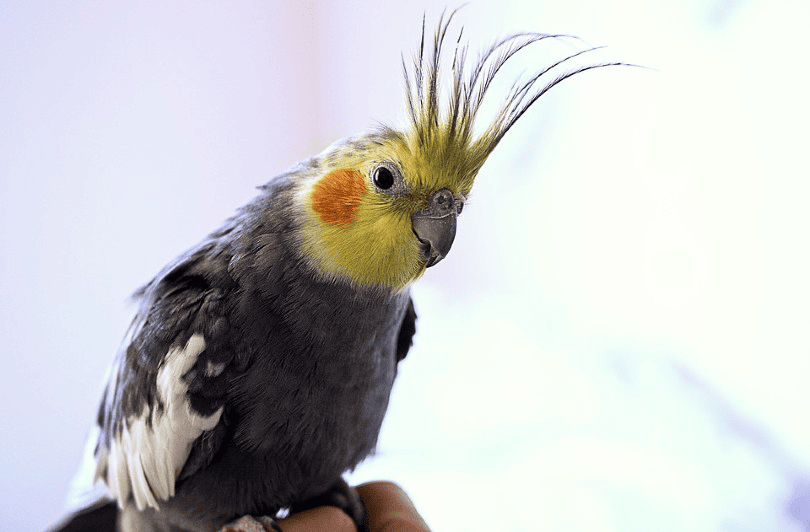
2. Discomfort
Discomfort is essentially a step down from fear for cockatiels, but it is a common reason for hissing to occur. TA variety of things could make your cockatiel uncomfortable, including introductions to new people or animals or changes in the environment. Discomfort can be remedied with patience and time, typically. Most cockatiels will adjust to new people and change quickly, but it is important to provide them with comfort and positive reinforcement in the meantime to build their confidence.
3. Territory Protection
While male cockatiels may hiss at other male birds to protect their territory, female cockatiels are known to hiss as a way to protect their nest and eggs or babies. Most female cockatiels are unwilling to engage with a threat unless absolutely necessary, and hissing can be an effective way to seem much scarier to something posing a threat to the nest. If your female cockatiel has been hissing a lot lately when people or animals come close to her space, you may need to rule out nesting.
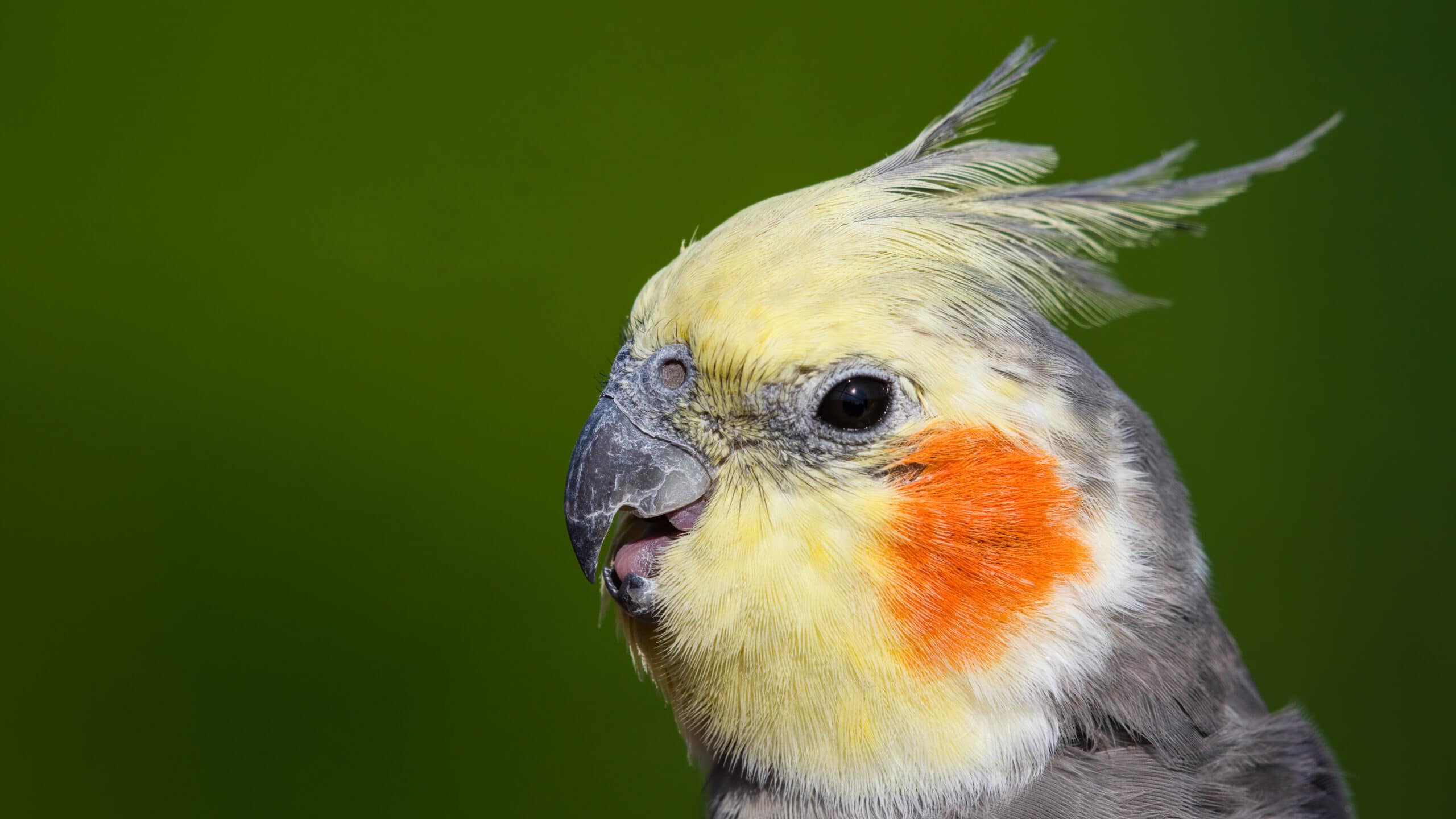
4. Irritation
Irritation or frustration can lead to your cockatiel hissing. This is especially likely to occur if you are doing something your cockatiel doesn’t approve of, like continuing to pet them after they’ve shown disinterest. They may also show irritation toward noisy children and pets. As social as these birds are, it’s important to provide them with a safe and quiet space to spend time. Like people, sometimes cockatiels need a little quiet time to themselves.
5. Seeking a Mate
When it comes to their love life, cockatiels are very different from people. Male cockatiels may hiss when attempting to attract a female. They may also hiss to let other males know the parameters of their territory. This is a good way to both attract a mate and deter competition. However, hissing doesn’t necessarily mean that another bird will respond to these attempts. Your male cockatiel may continue exhibiting this behavior after breeding has occurred, although this is not common.
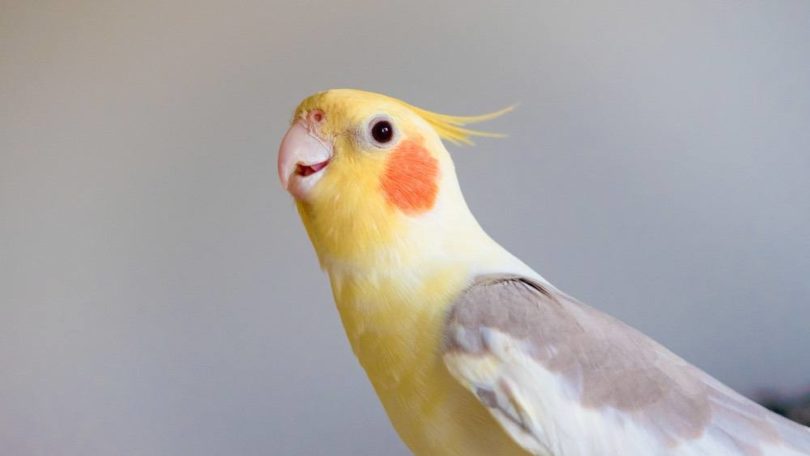
6. Excitement
Not all hissing is a bad thing in cockatiels. Young cockatiels are known to make a hissing-type noise when they are excited or feeling playful. This sound is uncommon in adult birds, though. This hissing-like sound is a quick and easy way to determine if your baby cockatiel is enjoying whatever is happening. This can occur when it comes to mealtimes or when an enjoyable game is introduced. It’s best to look for other indications that your bird is enjoying themselves, though, like fluffed body feathers, fanned facial feathers, and beak grinding.
If you’re new to the wonderful world of cockatiels, you’ll need a great resource to help your birds thrive. We highly recommend taking a closer look at The Ultimate Guide to Cockatiels, available on Amazon.
This excellent book covers everything from the history, color mutations, and anatomy of cockatiels to expert housing, feeding, breeding, and health care tips.
7. Intimidation
If your cockatiel wants to prove they’re big and scary, they may hiss. This form of intimidation can occur in combination with many of the previously mentioned causes of hissing, like fear, discomfort, and territory protection. By hissing, a cockatiel is making itself seem much more threatening than it is, often protecting itself by avoiding a physical altercation of some sort. Hissing in cockatiels is often used in a similar way to cats in an attempt to seem to be a greater threat.
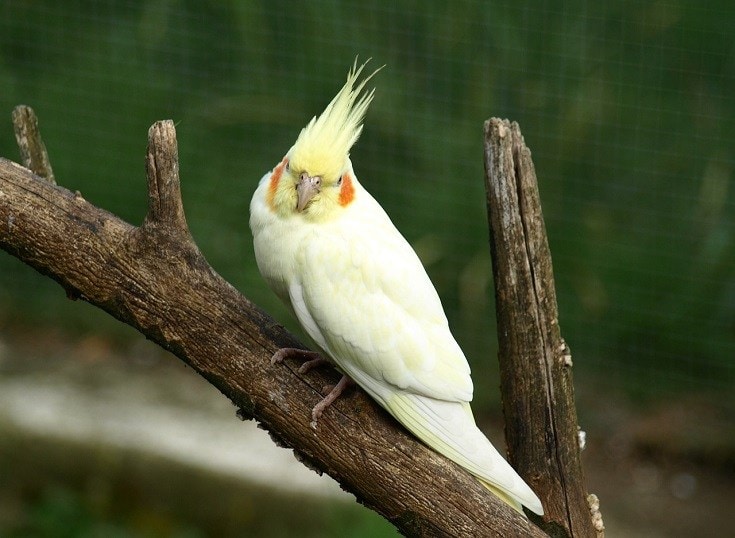
Summary
Cockatiels are social and intelligent birds, so they have a wide variety of ways they can communicate with you. Hissing is typically a sign that your bird is unhappy or stressed for some reason, but there are a few positive things that can indicate your bird is feeling as well. Make sure to pay attention to other ways your bird may be attempting to communicate with you if you notice hissing. This will help you determine the reason for the hissing and allow you to better care for your cockatiel.
Featured Image Credit: Pixabay



